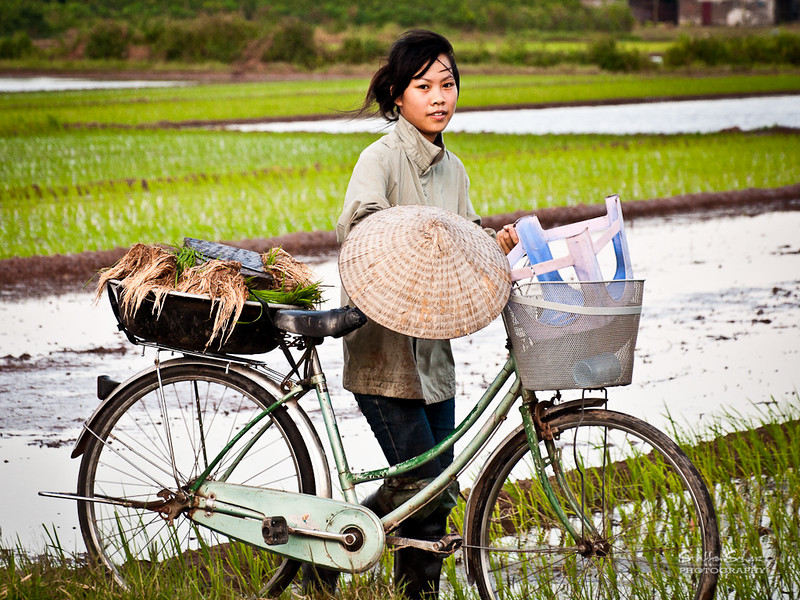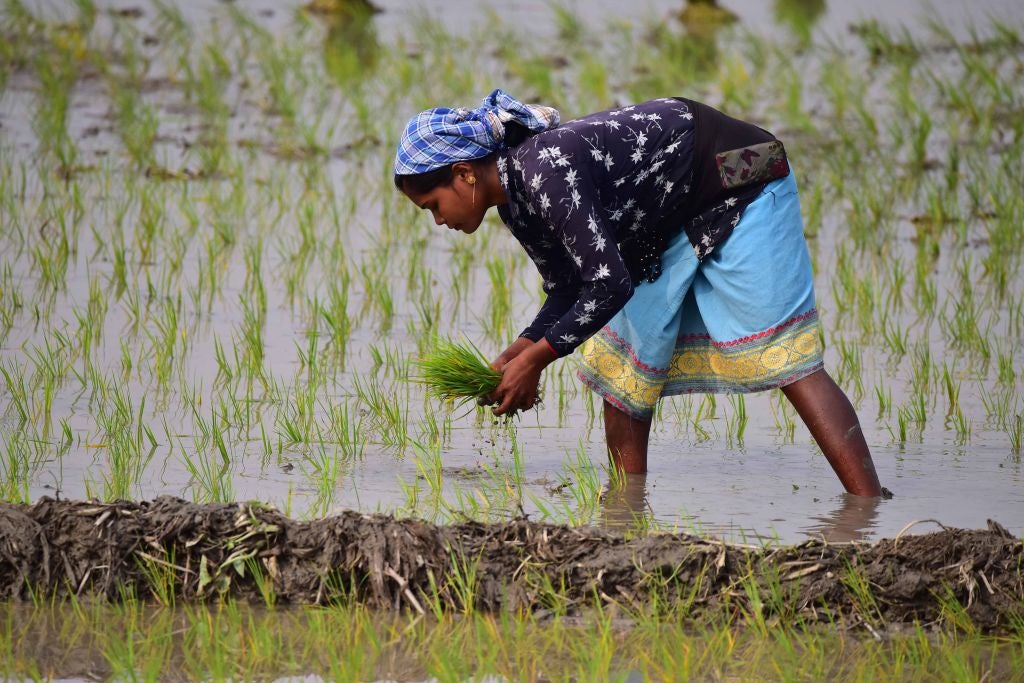Listen up, folks! If there's one thing that can change the game for global agriculture, it's sustainable rice production. Let me tell you something—rice isn't just a staple food; it's a lifeline for billions of people around the world. But here's the deal: traditional rice farming methods are not cutting it anymore. They're resource-intensive, environmentally taxing, and let's be real, not exactly future-proof. Enter the Rice Team—a powerhouse of innovation and sustainability redefining how we grow this golden grain. This is more than just farming; it's a revolution. So, buckle up because we're diving deep into the world of sustainable rice production and uncovering the brains behind it all.
Now, why should you care? Because rice production impacts everything—from the food on your plate to the health of our planet. And if we don't get it right, the consequences could be catastrophic. The Rice Team isn't just a group of scientists in lab coats; they're visionaries paving the way for a greener, more sustainable future. In this article, we'll explore their groundbreaking work, the challenges they face, and how they're turning the tide in favor of the environment. Stick around because this is one story you don't want to miss.
Before we dive deeper, let me set the stage. Sustainable rice production isn't just about planting seeds and hoping for the best. It's about rethinking every step of the process, from soil preparation to harvest. The Rice Team has cracked the code on how to make rice farming eco-friendly without sacrificing yield. And trust me, this isn't just talk. They've got data, results, and a plan that could transform the industry. So, let's get started and find out what makes this team so special.
Who Are the Rice Team?
Picture this: a group of passionate individuals coming together to tackle one of the biggest challenges of our time. The Rice Team isn't just any team; it's a coalition of experts from various fields—agriculture, environmental science, technology, and policy-making—all working towards a common goal: sustainable rice production. But who exactly are these trailblazers? Let's break it down.
Meet the Key Players
At the helm of this operation is Dr. Elena Martinez, a renowned agronomist with over 20 years of experience in sustainable agriculture. She's the brains behind many of the team's groundbreaking initiatives. Alongside her is Dr. John Chen, an environmental scientist whose research on water conservation has been instrumental in reducing rice farming's water footprint. Then there's Marcus Lee, a tech guru who's developed cutting-edge tools to monitor crop health and optimize resource use.
The Mission: Sustainable Rice Production
The Rice Team's mission is simple yet ambitious: to revolutionize rice farming by making it sustainable. But what does "sustainable" even mean in this context? It means producing rice in a way that doesn't harm the environment, conserves resources, and ensures long-term food security. This isn't just about saving the planet; it's about feeding the growing global population without compromising the future.
Why Sustainable Rice Production Matters
Rice is the staple food for over half of the world's population. But did you know that traditional rice farming accounts for a significant portion of global greenhouse gas emissions? Methane emissions from rice paddies alone contribute to climate change. That's why the Rice Team's work is so crucial. By developing sustainable practices, they're not only reducing the environmental impact but also ensuring that rice remains a viable food source for generations to come.
Breaking Down the Challenges
Let's be real for a second. Sustainable rice production isn't easy. There are plenty of challenges standing in the way, from outdated farming practices to lack of resources. But the Rice Team isn't backing down. They're tackling these obstacles head-on with innovative solutions. Here's a quick rundown of some of the biggest challenges they face:
- Water scarcity: Rice farming traditionally requires a lot of water, but with climate change, water resources are becoming scarcer.
- Soil degradation: Overuse of chemical fertilizers and pesticides has led to soil degradation, reducing crop yields.
- Economic barriers: Many farmers, especially in developing countries, lack the resources to adopt sustainable practices.
Innovative Solutions from the Rice Team
So, how are the Rice Team solving these problems? Through innovation, of course. They've developed a range of solutions that address the challenges of sustainable rice production. From water-saving techniques to eco-friendly fertilizers, they're leaving no stone unturned. Here are some of their most impressive innovations:
Water-Saving Techniques
One of the Rice Team's flagship initiatives is the development of water-saving techniques for rice farming. Traditional rice paddies require constant flooding, which is not only wasteful but also contributes to methane emissions. The Rice Team has introduced a method called Alternate Wetting and Drying (AWD), which significantly reduces water use while maintaining yield. It's a game-changer for water-scarce regions.
The Science Behind Sustainable Rice
Science is at the heart of everything the Rice Team does. They rely on cutting-edge research and technology to drive their innovations. But what exactly is the science behind sustainable rice production? Let's take a closer look:
Genetic Engineering for Better Rice Varieties
One of the most exciting areas of research is genetic engineering. The Rice Team has been working on developing rice varieties that are more resilient to environmental stresses like drought and flooding. These varieties not only require fewer resources but also produce higher yields. It's like giving rice a superpower!
The Role of Technology
Technology plays a crucial role in sustainable rice production. The Rice Team has harnessed the power of tech to monitor crop health, optimize resource use, and improve yields. From drones to AI, they're using every tool at their disposal to make rice farming smarter and more efficient.
AI in Rice Farming
Artificial intelligence is revolutionizing agriculture, and rice farming is no exception. The Rice Team has developed AI-powered systems that can predict crop yields, detect diseases, and recommend optimal planting times. It's like having a personal agronomist for every farmer.
Collaboration and Partnerships
The Rice Team knows that they can't do it alone. That's why they've formed partnerships with governments, NGOs, and private sector companies to scale their solutions. These collaborations are essential for reaching farmers on the ground and making sustainable rice production a reality.
Working with Local Farmers
One of the most important aspects of the Rice Team's work is their focus on local farmers. They understand that sustainable practices won't succeed unless they're adopted by the people who grow the rice. That's why they've launched training programs and support networks to help farmers transition to sustainable methods.
Impact and Results
So, what's the impact of the Rice Team's work? The numbers speak for themselves. Since their initiatives began, there's been a significant reduction in water use, greenhouse gas emissions, and chemical inputs. Farmers are reporting higher yields and better profits. And perhaps most importantly, the environment is benefiting from these sustainable practices.
Case Studies from Around the World
Let's look at some real-world examples of the Rice Team's impact. In Vietnam, the adoption of AWD has reduced water use by 30% while maintaining yield. In India, the introduction of eco-friendly fertilizers has improved soil health and increased crop productivity. These success stories are proof that sustainable rice production is not just possible but effective.
Challenges Ahead
Despite their successes, the Rice Team still faces challenges. Scaling their solutions to reach millions of farmers worldwide is no small feat. They also need to continue innovating to stay ahead of emerging challenges like climate change and population growth. But they're up for the task, and their commitment to sustainability remains unwavering.
Conclusion
In conclusion, the Rice Team is leading the charge in sustainable rice production. Their innovative solutions, scientific expertise, and collaborative approach are transforming the industry. By addressing the challenges of water scarcity, soil degradation, and economic barriers, they're making rice farming more sustainable and resilient. So, what can you do? Share this article, support sustainable agriculture, and spread the word about the importance of sustainable rice production. Together, we can create a greener future for all.
Table of Contents
- The Rice Team Unveiling the Powerhouse Behind Sustainable Rice Production
- Who Are the Rice Team?
- Meet the Key Players
- The Mission: Sustainable Rice Production
- Why Sustainable Rice Production Matters
- Breaking Down the Challenges
- Innovative Solutions from the Rice Team
- Water-Saving Techniques
- The Science Behind Sustainable Rice
- Genetic Engineering for Better Rice Varieties
- The Role of Technology
- AI in Rice Farming
- Collaboration and Partnerships
- Working with Local Farmers
- Impact and Results
- Case Studies from Around the World
- Challenges Ahead


